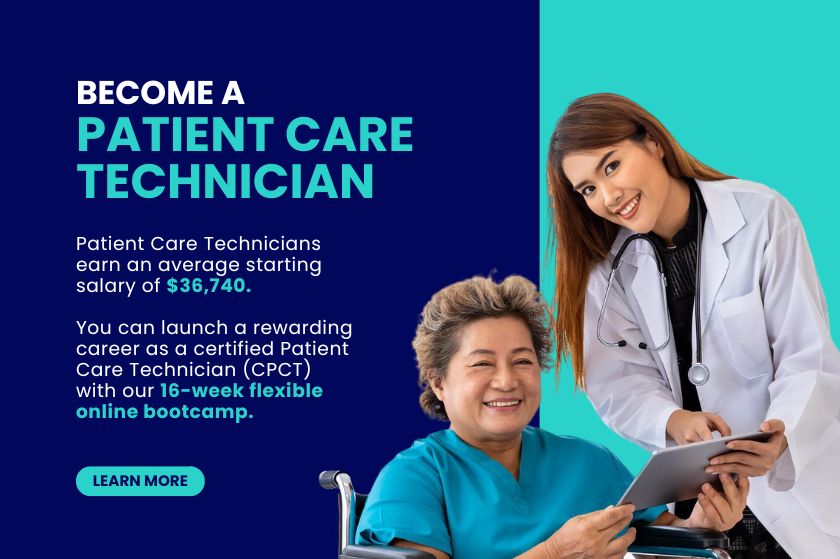Patient care technicians are integral to the healthcare industry, providing essential care to patients. To deliver quality care, patient care technicians need to possess a diverse range of professional skills. In this article, we will discuss 11 crucial professional skills that every patient care technician should have.
1. Communication Skills
Effective communication is paramount for patient care technicians as they interact with patients, families, and other healthcare professionals. Strong communication skills enable patient care technicians to listen actively, ask questions, and provide clear explanations to patients and their families. Additionally, patient care technicians must accurately communicate patient information and provide feedback to other healthcare professionals.
Furthermore, communication skills extend beyond verbal communication, as nonverbal communication is equally essential. Patient care technicians should be able to communicate with patients and their families empathetically, using body language and tone to convey care and support.
2. Compassion
Patient care technicians work with patients experiencing challenging medical conditions and their families. Compassion and empathy are essential qualities that patient care technicians should possess to provide emotional support and ensure that patients receive the best possible care.
Compassion involves understanding and sharing the feelings of patients and their families, creating a caring and comfortable environment, and developing a rapport that allows for open communication. When patients feel comfortable and cared for, they are more likely to cooperate with treatments and have a more positive outlook.
3. Attention to Detail
Patient care technicians must pay close attention to details to ensure accurate documentation, monitoring of vital signs, and administering of medication. Patient care technicians' attention to detail ensures that patients receive the appropriate care and that progress is documented accurately. By paying attention to details, patient care technicians can identify potential problems and prevent medical errors.
4. Critical Thinking
Patient care technicians must have strong critical thinking skills to analyze information, identify problems, and make quick decisions when needed. In a healthcare setting, situations can arise quickly that require prompt decision-making, and patient care technicians need to be ready to respond. Strong critical thinking skills help patient care technicians assess situations and determine the best course of action quickly.
5. Teamwork
Patient care technicians work alongside a team of healthcare professionals, including nurses, doctors, and support staff. Effective teamwork is critical in providing the best possible care to patients. Patient care technicians should be able to communicate effectively, delegate tasks, and work collaboratively with others to achieve the best possible patient outcomes.
Teamwork also involves respect and understanding for the roles of each healthcare professional. When everyone on the team is working together seamlessly, the patient's experience and outcome improve.
6. Technical Skills
Patient care technicians need a broad range of technical skills, including operating medical equipment, administering medication, and performing basic medical procedures such as phlebotomy, EKGs, and wound care. Proficiency in using electronic medical records is also crucial. Patient care technicians must handle medical equipment correctly and follow proper procedures to ensure patient safety.
7. Time Management
Patient care technicians have numerous responsibilities, and time management is essential to complete tasks within allocated time frames. They must prioritize tasks, manage their time effectively, and work efficiently to ensure that patients receive timely care. Time management also involves adapting to unexpected situations that arise and adjusting schedules accordingly.
8. Adaptability
The healthcare industry is continually evolving, and patient care technicians must be adaptable to changes. They must be able to learn new technologies, procedures, and protocols quickly. Patient care technicians should also be able to adapt to different working environments, such as hospital wards, nursing homes, and private homes, and provide the same level of care in each setting.
9. Patience
Patient care technicians work with patients who may have physical and emotional limitations. Patience is essential when working with patients, particularly those who require extra care and attention. Patience is also vital when communicating with patients and their families, as it takes time to build trust and rapport.
10. Cultural Competence
Patient care technicians work with patients from diverse cultural backgrounds, and cultural competence is critical in providing culturally sensitive care. Cultural competence involves being aware of and respecting cultural differences, beliefs, and values. Patient care technicians should be able to communicate effectively with patients from diverse backgrounds, provide care that is culturally sensitive and appropriate, and respect the patient's cultural and religious beliefs.
11. Ethical and Legal Standards
Patient care technicians are responsible for upholding ethical and legal standards in the healthcare industry. Patient care technicians should have a strong understanding of patient rights, privacy laws, and ethical standards of practice. Maintaining patient confidentiality, reporting any instances of unethical or illegal behavior, and being aware of the legal and ethical implications of their actions are critical for patient care technicians.
Patient care technicians are essential members of the healthcare team, and possessing the 11 professional skills outlined in this article is crucial for providing quality patient care. These skills involve both technical and interpersonal abilities, including communication, compassion, attention to detail, critical thinking, teamwork, technical skills, time management, adaptability, patience, cultural competence, and ethical and legal standards. By honing these skills, patient care technicians can provide the best possible care to patients, making a significant impact on their well-being and overall health outcomes.
Pursue a career in patient care today
Health Tech Academy offers a Patient Care Technician certification that helps you become job-ready in 16 weeks or less.
A PCT certification program provides a structured and comprehensive curriculum that covers all the essential skills needed to become a successful patient care technician. The program covers the core competencies that a patient care technician should have, such as communication skills, technical skills, critical thinking, and patient care. The curriculum is designed to provide students with hands-on training and clinical experience, enabling them to develop the skills they need to be successful in their careers.
Obtaining a PCT certification program from a reputable institution such as Health Tech Academy provides students with the opportunity to network with healthcare professionals and learn from experienced instructors. The instructors in the program have years of experience working in the healthcare industry and can provide students with valuable insights into the field, as well as advice on how to navigate their careers successfully.
Patient Care Technician Certification
Obtaining a PCT certification saves people time, money, and energy when working to become a Patient Care Technician. The certification program offered by Health Tech Academy is designed to be completed in a short amount of time, enabling students to quickly acquire the necessary skills and start working in the field. This saves them money by eliminating the need for lengthy college degrees, as well as energy by providing a more efficient path to certification.
Frequently Asked Questions and Answers
- What does a Patient Care Technician (PCT) do: Patient Care Technicians provide direct care to patients, assist with daily living activities, monitor vital signs, perform basic medical procedures, and support nurses and healthcare teams.
- What skills are most important for a Patient Care Technician: Key skills include communication, compassion, technical abilities (like phlebotomy and EKGs), critical thinking, and teamwork.
- What training is required to become a Patient Care Technician: Most PCTs complete a certification program, like the 16-week program offered by Health Tech Academy, which provides hands-on clinical experience and covers all essential skills.
- What career opportunities exist for Patient Care Technicians: PCTs can work in hospitals, nursing homes, clinics, or home healthcare, and certification can lead to further advancement in nursing or allied health roles.




